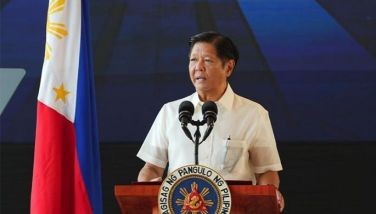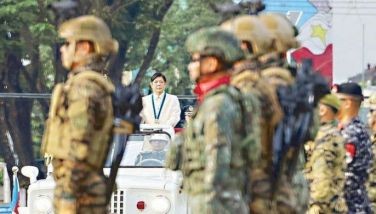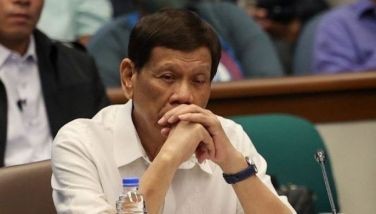Rizal in memory
Births are given meaning by how lives are lead. Jose Rizal gave his birth meaning by the exemplary life that he led. As he said, “A life which is not dedicated to a great ideal is useless. It is a pebble lost in the field without forming part of an edifice.” This June 19 is his 149th birth anniversary.
Years after his passing, Claro M. Recto would echo one of the great lines of Rizal when he said that a people can be colonized by themselves. For Rizal the greatest fear of all was that, even in removing the Spanish (and later the Americans), tyranny would remain. That the names and faces in charge would change, but a colonial state would still exist. One of his greatest essays was “The Philippines a Century Hence.” We wonder what he would think of the modern Philippines; of our government, our healthcare system, our education system. Is it possible that he would conclude that his worst fears have come true; that the slaves of yesterday have become the tyrants of today?
On Rizal Nick Joaquin wrote: “The Philippines is unique in winding up with a very ‘anti-hero’ as a chief patriot. Other cultures have great warriors in their national shrines: famed giants like King David of Israel, Caesar of Rome, Charlemagne of Europe, Bolivar of the Americas, Washington of the United States, Chiang Kai-Shek and Mao Tse-dung of China. All these being frontline fighters armed with blade or gun. But our hero is a shorty armed with pen and book.”
The literary legacy of Jose Rizal is undoubtedly impressive, even excluding his seminal novels in the Noli mi Tangere and El Filibusterismo. His critical and historical essays are well-worth reading, if only to understand what he was attempting to do. What he believed is that a nation is informed and knowledgeable by understanding their history. In knowing their past and present warts and all, they can best chart the course of their future. He wrote: “I have tried to do what no one else has been willing to do. I have had to reply to the calumnities which for centuries have been heaped upon us and our people. I have described the state of our society, our life, our beliefs, or hopes, our desires, our complaints, our laments.” The work he referenced was Noli.
“If only I might become a professor in my homeland, I would wake to life these studies of our homeland, this nosci ne ipsum (know thyself) which creates a true sense of national identity (Selbstgefuhl) and impels nations to do great deeds. But I shall never be allowed to open a college in my native land.” What Rizal believed in was the exhumation of history as it was, not necessarily what has been taught or presented as truth. This is a lesson well worth considering in how we view our history today. Shared history is a binding force throughout a nation. In re-visiting our history and understanding it anew we can begin re-crafting a national identity.
Felice Sta. Maria, in her work Rizal In Exelcis: “Jose Rizal was an Asian Renaissance Man. His understanding and exaltation of humanism sought the highest achievement — the excelsis — of homo universalis in active care for the being of others. He thereby transmuted the light of humanism for any new age.” Rizal predated the movements of Gandhi and the rise of democratic movements. He was a trailblazer in his own right, a man who dared to change a people through the power of the pen.
For obvious reasons we fixate on the glory of his death. But, the life that Rizal led is just as, if not even more, worthy of praise and emulation. The dedication to create a nation, one block at a time, is worth honoring. He spent a life building a new ideal, a new vision, a new nation for the Filipino people. He laid the foundation for Filipinas.
- Latest
- Trending


























